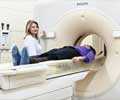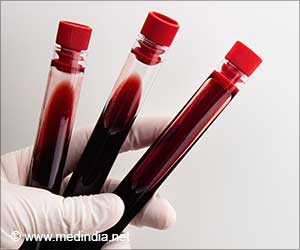Exposure to moderate levels of radiation may increase the rates of heart disease and stroke, but the degree of risk at lower doses is unclear.
Exposure to moderate levels of radiation may increase the rates of heart disease and stroke, but the degree of risk at lower doses is unclear, finds a large study of atomic bomb survivors published on bmj.com today.
Although the authors cannot be certain that this is a direct (causal) link, their study provides the strongest evidence available to date of an association between circulatory disease and moderate radiation exposure.Several studies have shown that high doses of radiation to the heart or head and neck from radiotherapy cause an excess of deaths from heart disease or stroke in later years. But it is uncertain whether radiation exposures at relatively low dose levels (under 1 Gy) also increase the risk.
This is an important public health issue because of the increasing use of multiple computed tomography (CT) scans and other relatively high dose diagnostic medical procedures.
Medical use of radiation is typically measured in milligray (mGy). The average radiation dose from an abdominal x-ray is 1.4 mGy (0.0014 Gy), that from an abdominal CT scan is 8.0 mGy (0.008 Gy), and that from a pelvic CT scan is 25 mGy (0.025 Gy).
To investigate this further, Dr Yukiko Shimizu and colleagues from the Radiation Effects Research Foundation in Japan examined the risk of heart disease and stroke in 86,611 atomic bomb survivors from Hiroshima and Nagasaki who have been followed up for 53 years, from 1950 to 2003, as part of the Japanese atomic bomb survivor Life Span Study.
Each member of the group had received an estimated radiation dose from 0-4 Gy (86% received less than 0.2 Gy) at the time of the bomb. Other risk factors for circulatory disease that could have affected the results, such as smoking, alcohol intake, education, occupation, obesity and diabetes were also taken into account.
Advertisement
Together, this represents about 210 excess deaths from circulatory disease associated with radiation exposure – about a third as many as the total excess number of cancer deaths (about 625) among atomic bomb survivors in the Life Span Study.
This study provides the strongest evidence available to date that radiation may increase the rates of stroke and heart disease at moderate dose levels (mainly 0.5-2 Gy), though the results below 0.5 Gy are not statistically significant, say the authors. Further studies should provide more precise estimates of the risk at low doses, they conclude.
This study adds to a growing body of moderate and low dose data suggesting an association between cardiovascular disease and exposure to low-moderate levels of radiation, as well as the well understood association at high doses, says Mark Little from Imperial College London, in an accompanying editorial.
However, it is unclear whether the biological mechanisms operating at high doses of radiation apply to low doses, and this should be the focus of future research, he concludes.
Source-BMJ
SRM














